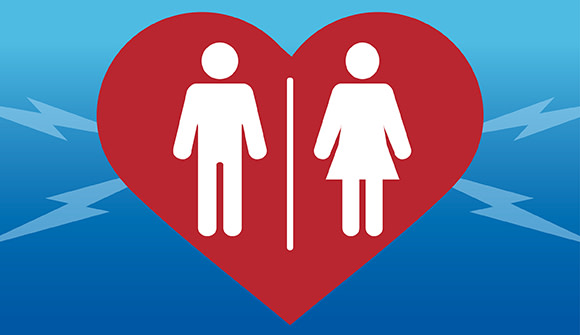The ‘yeast beast’
The myths and legends surrounding yeast infections.
Article Author: Katie McPherson
Article Date:

Seventy-five percent of all women will contract a yeast infection at some point in their lives. Since the odds are not in their favor, ladies one and all should know the signs and symptoms of the “yeast beast” approaching, and how to handle it when it strikes.
Of course, yeast infections are most notorious for that annoying itch in your britches. But there are some other early warning signs that may come first and are worth keeping in mind.
“In general, itching is the most common symptom,” said Paulami Guha, MD, a gynecologist and gynecologic surgeon at Baptist Health and North Florida Gynecology Specialists, LLC. “There can be burning sensations, soreness, general irritation, and also discomfort with sex.”
Dr. Guha added that the most common time to contract a yeast infection is about a week prior to starting menses. That said, it’s not recommended for women to diagnose themselves, even if you’re pretty sure it’s a yeast infection. Turns out, there are other health concerns that can cause similar symptoms.
“We highly discourage self-diagnosis because there have been studies that have shown you’re not always accurate,” said Dr. Guha. “Monistat® will take care of it, and many times it does, but suppose it isn’t a yeast infection? Then it’s not going to help and antifungal medication will make things worse. It could be that you’re having an allergic reaction to something, which I see all the time.”
Beware the beast getting bigger
If left untreated, a yeast infection and similar conditions can turn into something more bothersome, said Dr. Guha. In some patients, the infection can progress to the skin of the vulva and cause irritation and inflammation, known as vulvitis.
“Also, in diabetic patients, it can cause a yeast urinary tract infection if you have [a yeast infection] for a long time. Chronic yeast infections on the vulva, if you don’t treat them, can progress to a chronic vulvar skin condition. It can also trigger spasms of the pelvic floor muscles and vulvar pain conditions, which can lead to painful sexual intercourse.”
So, not like you needed more incentive to treat a yeast infection, but there you have it. What’s the best method to do just that? Simply using an antifungal cream or oral antifungal medicines from the pharmacy should do the trick. If it doesn’t clear up as expected, checking in with your physician is the next step.
Is the beast afraid of anything?
As always, prevention is the best medicine. Most of what we think we know about yeast infections doesn’t have much data to support it. However, following these steps may help keep the yeast beast at bay.
“There is a misconception that taking probiotics orally or as suppositories will prevent yeast infections. Sometimes people take it before and after antibiotic use, but there’s not enough evidence that it actually helps. Some people think there’s a link between yeast infections and douching, using tampons versus pads, and wearing tight or synthetic clothing. The evidence behind those associations is weak. Those things are not good for your vulvar hygiene anyway, so we’d recommend not doing them, but whether they actually cause a yeast infection is debatable,” explained Dr. Guha.
So, while there’s not a ton of research to support whether or not tight clothes or probiotics have any effect on yeast infections, it can’t hurt to be mindful of those things anyway.
“In general, practice overall vulvar hygiene like not douching, not wearing tight clothing and not wearing swimsuits for an extended time. Use of vaginal sponges, diaphragms and IUDs are also associated with yeast infection but it’s not consistent, so not all women with IUDs will get yeast infections, but some women are more prone once they have an IUD.”
Who does it bother?
While any girl or woman can experience a yeast infection, some are more prone to them than others.
“A patient with diabetes or any kind of chronic illness that decreases your immunity, or a patient on immunosuppressant medication, has a higher risk,” Dr. Guha said. “Antibiotic use is a very common thing we see causing yeast infections, and also estrogen therapy, like being on an oral contraceptive.”
If you are experiencing symptoms of a yeast infection, visit 4Her or call 904.202.4HER (4437) to find the right provider for you and make an appointment.



